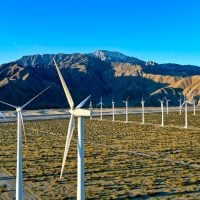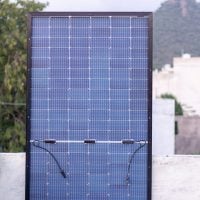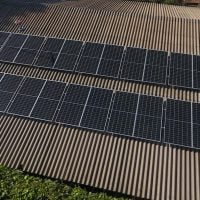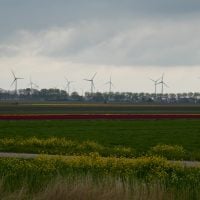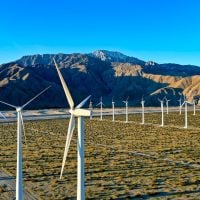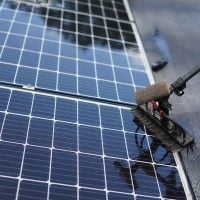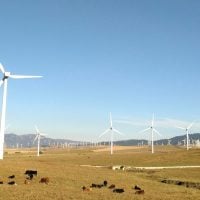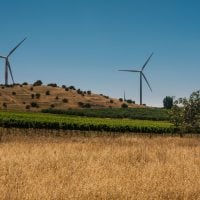In post-conflict regions, the need for energy access is not merely a matter of convenience; it is a fundamental requirement for rebuilding communities and fostering economic development. The devastation caused by conflict often leads to the destruction of infrastructure, including power generation and distribution systems. As a result, many communities find themselves without reliable electricity, which hampers their ability to engage in essential activities such as education, healthcare, and commerce.
Understanding these energy access needs is crucial for NGOs and other stakeholders aiming to implement effective interventions. Moreover, the energy access needs in these regions are often multifaceted. For instance, rural areas may require off-grid solutions that can provide electricity to remote communities, while urban centers may need to restore and upgrade existing grid systems.
Additionally, the energy needs of different sectors—such as agriculture, education, and healthcare—must be considered to ensure that interventions are holistic and sustainable. Engaging with local communities to assess their specific energy requirements can lead to more tailored solutions that address the unique challenges faced in post-conflict settings. Are You Working on Solar Innovation or Clean Energy Access? Join us to receive updates.
Identifying Potential Funding Sources for Energy Access Projects
Identifying potential funding sources for energy access projects in post-conflict regions is a critical step in ensuring the success of these initiatives. Various funding avenues exist, ranging from government grants to private sector investments. NGOs must conduct thorough research to identify which sources align with their project goals and the specific needs of the communities they serve.
This process often involves mapping out potential donors, understanding their funding priorities, and tailoring proposals to meet those criteria. In addition to traditional funding sources, NGOs should also explore innovative financing mechanisms such as crowdfunding and community-based financing models. These approaches can empower local communities by involving them in the funding process and ensuring that they have a stake in the success of energy access projects.
By diversifying funding sources, NGOs can enhance their resilience against potential funding shortfalls and create a more sustainable financial model for their initiatives.
Leveraging International Aid and Development Funds
International aid and development funds play a pivotal role in financing energy access projects in post-conflict regions. Organizations such as the United Nations Development Programme (UNDP) and the World Bank offer various funding opportunities specifically aimed at rebuilding infrastructure and promoting sustainable development. NGOs can leverage these funds by aligning their project objectives with the strategic priorities of these international organizations.
To effectively tap into international aid, NGOs must develop strong proposals that clearly articulate the impact of their projects on local communities. This includes providing data on energy access gaps, outlining the expected outcomes of proposed interventions, and demonstrating how these initiatives contribute to broader development goals such as poverty alleviation and gender equality. Building relationships with key stakeholders within these international organizations can also enhance an NGO’s chances of securing funding.
Exploring Public-Private Partnerships for Energy Access Initiatives
Public-private partnerships (PPPs) offer a promising avenue for financing energy access initiatives in post-conflict regions. By collaborating with private sector entities, NGOs can leverage additional resources, expertise, and innovative technologies that can enhance the effectiveness of their projects. These partnerships can take various forms, from co-financing arrangements to joint ventures that combine public resources with private sector efficiency.
Successful examples of PPPs in energy access include initiatives where private companies provide technical expertise and investment capital while NGOs facilitate community engagement and capacity building. For instance, a partnership between an NGO and a renewable energy company could result in the installation of solar microgrids in rural areas, providing reliable electricity while also creating local jobs. By fostering collaboration between public entities, private companies, and civil society organizations, NGOs can create more sustainable energy solutions that benefit communities in post-conflict settings.
Tapping into Renewable Energy Grants and Investments
The global shift towards renewable energy presents a unique opportunity for NGOs working in post-conflict regions to secure funding through grants and investments specifically aimed at sustainable energy solutions. Various foundations, government agencies, and international organizations offer grants for projects that promote renewable energy technologies such as solar, wind, and biomass. NGOs should actively seek out these opportunities by staying informed about available grants and aligning their project proposals with the objectives of these funding bodies.
In addition to grants, impact investors are increasingly interested in supporting renewable energy projects that demonstrate social and environmental benefits. By presenting a compelling business case that highlights both the financial viability and social impact of their initiatives, NGOs can attract investments that not only fund their projects but also contribute to long-term sustainability. Engaging with impact investors requires NGOs to develop robust business models that outline revenue generation strategies while ensuring that community needs remain at the forefront of their efforts.
Utilizing Impact Investing and Social Venture Capital
Impact investing and social venture capital represent innovative financing mechanisms that can significantly benefit energy access projects in post-conflict regions. These investment strategies focus on generating measurable social or environmental impact alongside financial returns. For NGOs, this means that they can attract funding from investors who are not only interested in profit but also committed to making a positive difference in communities.
To successfully engage with impact investors, NGOs must clearly articulate their social impact goals and demonstrate how their energy access initiatives align with these objectives. This may involve presenting data on how improved energy access can lead to enhanced educational outcomes or increased economic opportunities for marginalized populations. By showcasing the potential for both social impact and financial returns, NGOs can position themselves as attractive partners for impact investors looking to support transformative projects in post-conflict settings.
Engaging with Multilateral Development Banks for Financing
Multilateral development banks (MDBs) are key players in financing development projects worldwide, including those focused on energy access in post-conflict regions. Institutions such as the African Development Bank (AfDB) and the Asian Development Bank (ADB) provide substantial funding for infrastructure projects aimed at rebuilding economies and improving living conditions. NGOs should actively engage with MDBs to explore potential financing opportunities for their energy access initiatives.
To effectively engage with MDBs, NGOs must develop comprehensive project proposals that align with the banks’ strategic priorities and demonstrate a clear understanding of local contexts. This includes providing detailed assessments of energy needs, outlining implementation strategies, and highlighting potential partnerships with local governments or private sector actors. Building relationships with MDB representatives can also enhance an NGO’s chances of securing funding by fostering trust and collaboration.
Seeking Support from Non-Governmental Organizations and Foundations
Collaboration with other non-governmental organizations (NGOs) and foundations can be instrumental in securing funding for energy access projects in post-conflict regions. Many foundations have specific mandates focused on sustainable development or humanitarian assistance, making them valuable partners for NGOs seeking financial support. By forming alliances with like-minded organizations, NGOs can pool resources, share knowledge, and increase their collective impact.
In addition to financial support, collaborating with other NGOs can provide access to valuable expertise and best practices in implementing energy access initiatives. For example, an NGO specializing in renewable energy technology may partner with another organization focused on community development to create a comprehensive approach to energy access that addresses both technical and social dimensions. By leveraging each other’s strengths, NGOs can enhance their effectiveness and improve outcomes for communities in need.
Harnessing the Power of Corporate Social Responsibility Programs
Corporate social responsibility (CSR) programs present another avenue for securing funding for energy access initiatives in post-conflict regions. Many corporations are increasingly recognizing the importance of contributing to sustainable development as part of their business strategies. By aligning their CSR objectives with energy access projects, NGOs can tap into corporate resources while also fostering mutually beneficial partnerships.
To effectively engage corporations through CSR programs, NGOs should identify companies whose values align with their mission and project goals. This may involve conducting research on corporate sustainability initiatives or reaching out to companies operating within the region. Developing proposals that clearly outline how corporate support can lead to positive social outcomes—such as job creation or improved community health—can enhance an NGO’s chances of securing funding through CSR partnerships.
Navigating the Challenges of Securing Funding in Post-Conflict Regions
Securing funding for energy access projects in post-conflict regions is fraught with challenges that NGOs must navigate carefully. Political instability, economic uncertainty, and limited infrastructure can complicate fundraising efforts and deter potential investors or donors. Additionally, competition for limited resources among various organizations can make it difficult for individual NGOs to stand out.
To overcome these challenges, NGOs must adopt a proactive approach to fundraising by diversifying their funding sources and building strong networks within the donor community. This may involve attending conferences, participating in workshops, or engaging with online platforms dedicated to connecting NGOs with potential funders. By cultivating relationships with donors and demonstrating a commitment to transparency and accountability, NGOs can enhance their credibility and increase their chances of securing funding.
Building Sustainable and Resilient Energy Access Models through Strategic Funding
Ultimately, building sustainable and resilient energy access models in post-conflict regions requires strategic funding approaches that prioritize long-term impact over short-term gains. NGOs must focus on creating integrated solutions that not only address immediate energy needs but also contribute to broader development goals such as poverty reduction, gender equality, and environmental sustainability. By leveraging diverse funding sources—ranging from international aid to private sector investments—NGOs can create comprehensive energy access models that are adaptable to changing circumstances.
Engaging local communities throughout the process ensures that interventions are culturally relevant and sustainable over time. As NGOs continue to innovate and collaborate across sectors, they will play a crucial role in transforming energy access landscapes in post-conflict regions, ultimately contributing to lasting peace and development.
In the quest to secure funding for energy access in post-conflict regions, exploring various grant opportunities can be crucial. One such opportunity is the Levi Lassen Foundation Grants Program in Israel. This program focuses on supporting initiatives that foster community development and resilience, which can be particularly beneficial for projects aimed at rebuilding and providing sustainable energy solutions in areas recovering from conflict. By tapping into such funding sources, organizations can enhance their capacity to implement impactful energy access projects that contribute to long-term stability and growth in post-conflict regions.

